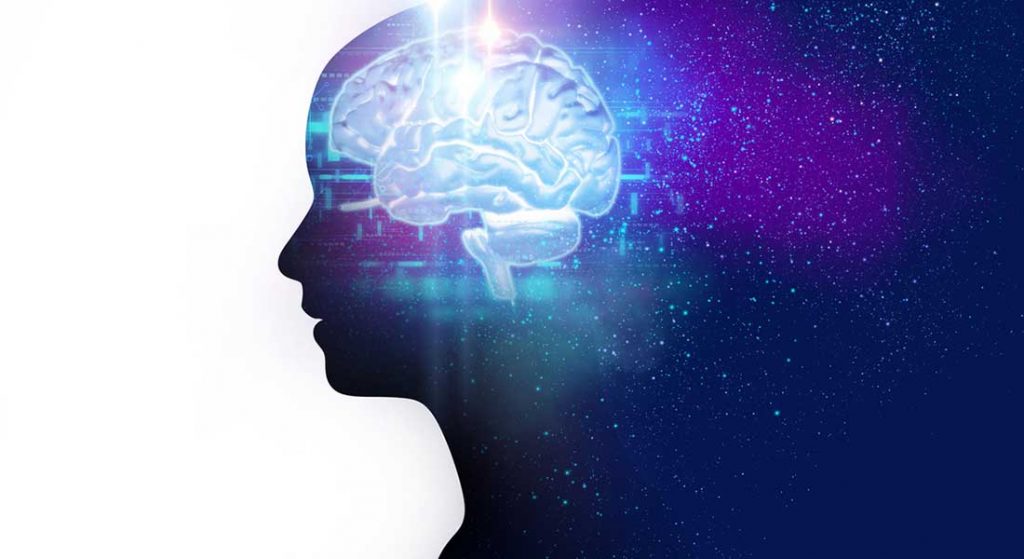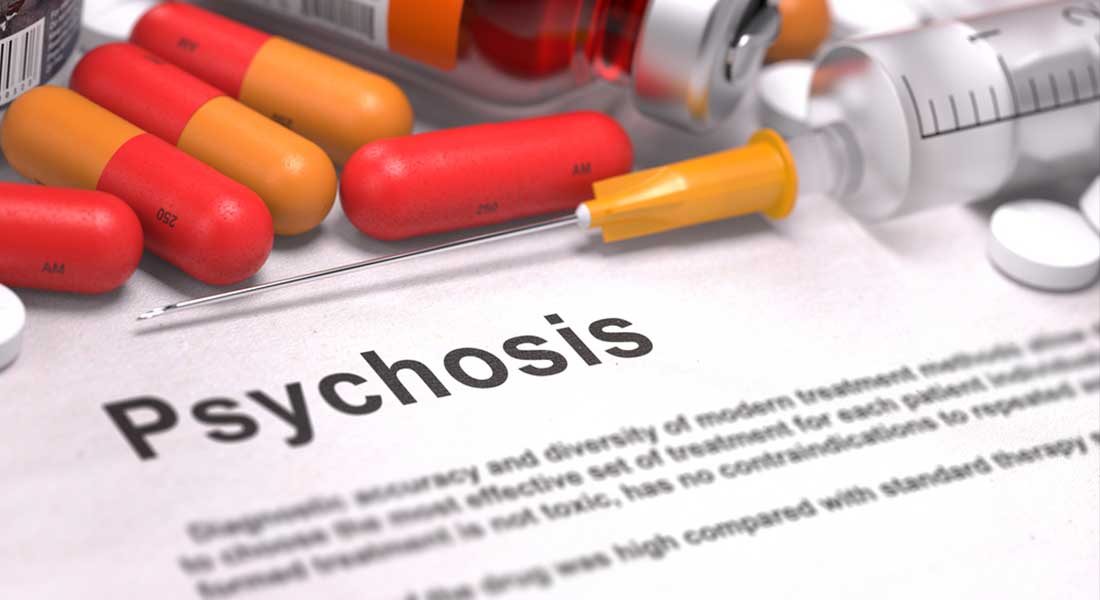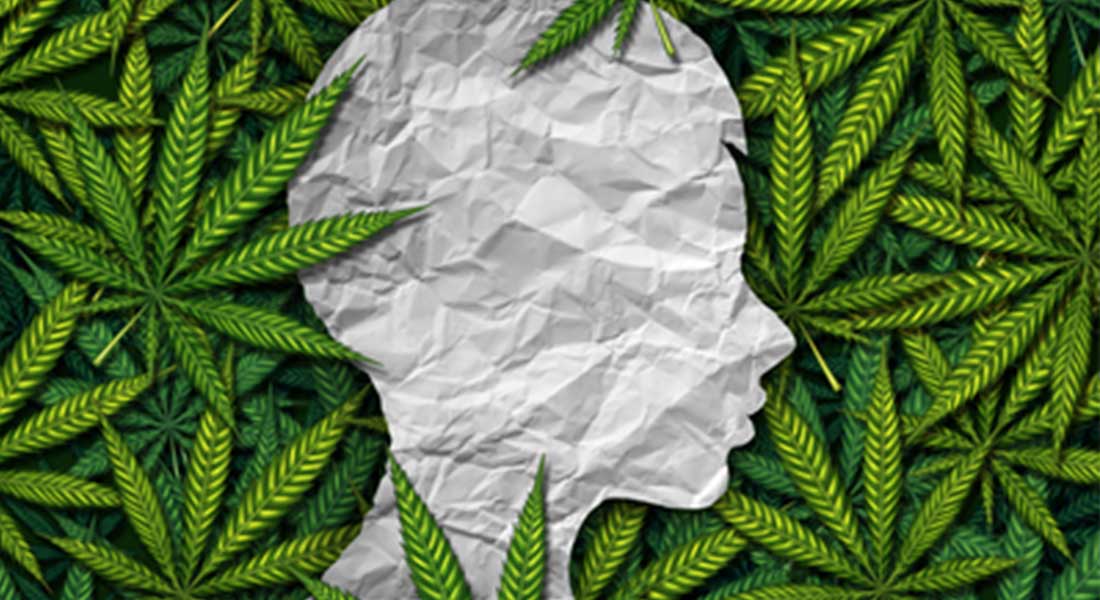Psychosis: Diagnosis and Treatment
What is psychosis?
Psychosis is not a diagnosis, but rather a symptom of several psychiatric illnesses. Individuals experiencing psychosis may have trouble distinguishing which of their perceptions and thoughts are real and which are not. They often see, hear, smell or believe things that other people do not, or have persistent thoughts, behaviors, or emotions that are inconsistent with what other people experience in the same environment or situation.
Psychosis can be associated with many different diagnoses and illnesses including schizophrenia, schizoaffective disorder, bipolar illness, and even depression.

Psychosis can be associated with many diagnoses and illnesses, including:
- schizophrenia
- schizoaffective disorder
- bipolar illness
- depression
- dual diagnosis
A first episode of psychosis typically occurs in adolescence or early adulthood, and prevalence rates are similar for males and females. About 3% of all young people will experience a psychotic episode. Like many psychiatric symptoms, psychosis occurs in episodes, usually with periods of time in between with few or no symptoms.
Like many mental illnesses, researchers point to a stress-diathesis model, or stress-vulnerability model, to explain the cause of psychosis. Some individuals may possess a genetic vulnerability, but whether or not they develop symptoms, and to what extent, depends on environmental factors like exposure to trauma, stress, nutrition, infections, injuries, or other medical illnesses.
What does psychosis look like?
Common symptoms of psychosis include:
- hallucinations
- delusions or fixed false beliefs
- confused or illogical thinking
- nonlinear or tangential thinking
- receiving messages from the entertainment or news you consume or your environment
- believing that people or organizations are out to get you
- believing you have superpowers or control over others
Hallucinations
Hallucinations are defined as perceptual disturbances of one or more of the five senses. People experiencing psychosis may hear, see, or smell things that other people do not. Hallucinations often feel threatening to the patient, and in some cases, they may feel comforting.
Delusions and False Beliefs
Some psychoanalysts believe that psychosis is the extreme version of a reaction formation. A reaction formation occurs when what you believe about yourself is inconsistent with what you believe about the world. To “fix” the inconsistency in two competing truths, a delusion develops that transforms the painful truth into its extreme opposite. For example, if you believe the only people who deserve love and respect are powerful and successful, but you feel weak and ineffective, under the right conditions of genetics and environment you may develop a psychotic delusion that you are a superhero.
Some evidence suggests that the type of psychosis that develops is connected to an individual’s environment and lived experiences. For example, delusions often relate to a patient’s geographic location. On the West Coast, people are more likely to believe they are a celebrity. On the East Coast, people may believe they are an FBI or government official, and in the South a religious leader. These connections suggest that psychosis may not be random “misfirings” in the brain and support the idea that environment and experience may contribute to the development of psychotic symptoms. For many people, psychotic symptoms may not have metaphoric meanings and can represent illogical connections between unrelated brain cells.
Is psychosis dangerous?
Individuals with psychosis are rarely violent and, in fact, they are at much greater risk of causing harm to themselves than to others.
Psychosis and Suicide
Untreated psychosis increases the risk for suicide. While the total numbers of suicide deaths are highest for individuals with depression, the rate of suicide attempts is highest for individuals with bipolar illness and schizophrenia. People with schizophrenia who experience command auditory hallucinations—voices that tell them to do things—are especially at risk.
Psychosis in Entertainment
Among mental health diagnoses and symptoms, psychosis is arguably the most misrepresented in entertainment, movies, and television. Psychosis can look and feel very dramatic. It’s easy for writers to make psychosis the motivation for dramatic events or wild behavior in a story without including a more complete or nuanced description of a character struggling with a medical illness. Unfortunately, these misrepresentations have consequences. They perpetuate the false notion that all people with psychosis hear voices or that they are dangerous, which reinforces stigma and creates barriers that prevent people from seeking treatment.
What Illnesses or Diagnoses Are Associated with Psychosis?
Schizophrenia and Psychosis
Schizophrenia, a thought disorder, affects about 1% of Americans. People with schizophrenia have difficulty thinking clearly, managing emotions, making decisions, and relating to others. Along with psychosis, people with schizophrenia often also experience anosognosia, which means they are not aware that they have a mental illness, which can make engaging in psychiatric treatment difficult for individuals with this diagnosis.
Psychosis is one of the positive symptoms of schizophrenia. Positive in this case meaning “extra” or not “good.” The negative symptoms of schizophrenia often are more challenging to treat. Negative in this context means “missing.” Negative symptoms of schizophrenia include a lack of social skills, a loss of interest in activities or relationships, poor ability to initiate activities and movement, lack of facial expressions, loss of organization of communications, and lack of concern about personal care and hygiene.
Mood Disorders and Psychosis
Psychosis is a defining symptom of thought disorders like schizophrenia and schizoaffective disorder; however, psychosis can also accompany mood disorders like major depression and bipolar disorder.
In fact, a majority of patients with bipolar disorder in an overt manic episode have some sort of psychosis. One of the diagnostic criteria for a manic episode is grandiosity. If grandiose thoughts evolve into a belief that you have special powers or that you are a famous movie star, those thoughts become delusions and a psychotic symptom in the context of a mood disorder.

A majority of patients with bipolar disorder in an overt manic episode have some sort of psychosis, often related to grandiosity.
Some people who have major depressive disorder also experience psychosis, often in the form of paranoia. If you view the world through the lens of someone who is depressed, you can easily start to adopt a belief that everyone is conspiring against you or that you are constantly in danger.
The difference between having psychosis with a mood disorder like bipolar illness or depression and having psychosis as part of a thought disorder like schizophrenia is the role psychosis plays in driving the illness. In mood disorders, the psychosis is driven by mania or depression. It often takes on the “flavor” of the mood episode the person is experiencing, and mood symptoms and psychosis symptoms occur together.
In thought disorders, psychosis is the driver of the illness. The psychosis symptoms appear first, and there often is no clear thematic connection between the type of psychosis and other symptoms that the individual experiences. In many cases, the confusion and isolation created by the psychosis may lead to the development of depression or anxiety.
Schizoaffective Disorder and Psychosis
With schizoaffective disorder, patients experience both psychosis and mood symptoms, though they do not occur concurrently. For example, for at least two weeks, an individual with a schizoaffective disorder diagnosis may have an episode of depression without any symptoms of psychosis and then the depression resolves. Then later, the same individual has an episode of psychosis without any symptoms of depression or mania.
Substance-Induced Psychosis
Some people may experience substance-induced psychosis. In these cases, the psychotic episode is the result of the use of a substance like alcohol, marijuana, or other drugs. Psychotic symptoms can result from the use of a substance or from withdrawal. Symptoms of psychosis may resolve with prolonged abstinence. Traditional treatment with antipsychotic medications and psychotherapy are not very effective in helping people with psychosis caused by substance misuse.
Other Diagnoses Related to Psychosis
In older adult populations an episode of psychosis may be related to an underlying infection like a urinary tract infection, HIV, or tertiary syphilis. In younger adults, psychosis is not likely to be connected to an infection and is far more likely to be caused by a mood or thought disorder.
Some people who may look like they are exhibiting psychotic behaviors are not in fact experiencing psychosis. Obsessive-Compulsive Disorder, or OCD, is a good example. If you see someone wash their hands 20 times in an hour, that behavior may seem like a product of psychosis, yet the behavior is not driven by a delusion or fixed false belief. The behavior is driven by a compulsion. OCD is more likely the diagnosis, which would require a different treatment strategy.
Importance of Psychiatric Assessment & Diagnosis
An accurate diagnosis for someone experiencing psychosis, especially a first episode of psychosis (FEP) requires a thorough psychiatric evaluation and medical history. A psychiatrist needs to determine the order and timing of psychosis, mood episodes, and other psychiatric symptoms, along with the impact of any substances or medical problems like infections or head injuries. Receiving an accurate diagnosis is a critical first step to connecting an individual with the appropriate evidence-based treatment.
Treatments for Psychosis
Medication and Psychosis
Once a diagnosis of psychosis has been determined by a psychiatrist, the first and most important step is to prescribe appropriate medication. Medication is critically important for psychosis—even more than for other psychiatric symptoms—because the duration of untreated psychosis is the best predictor for prognosis.
There’s a linear relationship between the length of untreated psychosis and negative outcomes. As a patient experiences untreated psychosis over time, they likely also experience increasing cognitive disability, difficulty with social connections, challenges with self-care, and risk of suicide. For every day someone who lives with untreated psychosis, things get worse. In fact, some of the disability that results from untreated psychosis is irreversible. Therefore medication is central to an evidence-based treatment plan for psychosis.

After a psychosis diagnosis, appropriate medication is the first and most appropriate next step.
Medication adherence is important for individuals with psychosis, but medication adherence can be difficult, especially for patients with a thought disorder like schizophrenia. In the CATIE Trail—the gold standard trial of antipsychotic treatments—in the previous 30 days of assessment, half of all participants had missed at least one day of their oral medication.
A great solution for overcoming difficulties with daily medication use is a long-acting injectable antipsychotic medication to help prevent relapse. Many antipsychotic injectables are now available that only require an injection in longer intervals, ranging from injections once every two weeks to medications that are administered once every three months. Long-acting injectables do require regular blood testing and quarterly metabolic assessments. Almost all atypical antipsychotic medications—oral and injectable—are associated with increased appetite and weight gain.
Electroconvulsive Therapy, or ECT, may also be an effective treatment for patients when medications are not effective and psychotic symptoms persist.
Cognitive Training and Psychosis
Recent research is pointing to cognitive training, otherwise known as cognitive remediation therapy, as an important treatment for people who have been diagnosed with psychosis. Cognitive training is a computer-based learning curriculum that helps people improve memory, processing speed, executive function, and problem-solving skills. Brain training programs may even help people learn to better interpret nonverbal cues like facial expressions or body language. In concert with medications and therapy, cognitive training may be effective in stopping cognitive decline or even reversing it in some situations.
Evidence-based Psychotherapy for Psychosis
The treatment team at Skyland Trail uses two evidence-based therapeutic models as the basis for treatment for individuals with psychosis. The first therapeutic model is reality testing. Reality testing involves gathering data to confirm or refute beliefs so that one can test ideas and label them as real or not real. Patients are encouraged to collect data by asking trusted friends or family members, consider related events that occurred previously, and so on. Then individuals can compare what the data says in context with internal thoughts and perceptions. Over time, patients can learn to recognize thoughts and perceptions that are not real and use appropriate skills to respond to them.
The second evidence-based treatment model is a type of Cognitive Behavioral Therapy (CBT) that targets symptoms of psychosis. Therapeutic work is focused on thought control and behavior regulation with a component of reality testing.
Insight-oriented therapies, which ask patients to consider how events or patterns from their childhood or early adulthood have shaped how they see the world or their current approach to relationships, are typically not effective for patients with acute psychosis.
Independent Living & Social Skills and Psychosis
Medication is not very effective for treating the negative symptoms of illnesses associated with psychosis, like schizophrenia. Again, negative in this case means missing. Patients may need support and encouragement to set and meet personal care goals. These are called Activities of Daily Living (ADLs), and include bathing, brushing your teeth, doing laundry, maintaining a clean living environment, establishing regular sleep and wake times, and eating regular meals. Individuals with these diagnoses also may need to build new skills to be able to enjoy relationships with friends and family members.
Residential psychiatric treatment programs focused on building these types of skills in a safe and supportive environment can help individuals with schizophrenia or other illnesses with negative symptoms reset daily routines and establish a foundation for healthy independent living.
Diet and Exercise and Psychosis
Most of the newer antipsychotic medications can result in the development of a side effect called cardiometabolic syndrome. These medications impact someone’s brain directly, increasing appetite. They also change the way insulin works on fat cells in the rest of the body, causing insulin to be less able to drive sugars into cells. The results of these two side effects include high levels of blood sugar, increased weight, high cholesterol and triglyceride levels, and an overall increased body mass index. If left unchecked, these changes increase the risk of heart disease, diabetes, and other physical medical problems. Consequently, healthy eating and active living with regular physical assessments are equally important for patients being treated with newer antipsychotic medications to prevent cardiometabolic syndrome.
The relationship between antipsychotic medications and metabolic conditions was the impetus of the Healthy Challenge program at Skyland Trail. Healthy Challenge provides an extra layer of education and support to reduce the risk of cardiometabolic syndrome. Participating patients receive access to a personal trainer for weight control and to promote lean muscle mass through exercise. They also receive a low-carbohydrate, high-lean-protein meal plan; psycho-education about the link between physical and mental health; tobacco cessation tools; nutritional education; and relaxation classes, including yoga and compassion meditation.
In addition to countering the side effects of antipsychotic medications, emerging data indicate that some physical health measures and psychiatric outcomes may be linked. For example, patients who experience an improvement in their body mass index or average blood glucose may be more likely to experience improved mental health symptoms and functionality. Integrated wellness programming helps ensure that patients are working toward healthy futures using all the tools available.
Family Involvement and Psychosis
Family involvement in treatment can improve outcomes for patients with psychosis. Families can provide support to help ensure medication adherence. Families can also help patients develop and implement a Wellness and Recovery Action Plan, or WRAP Plan, that outlines potential signals that an individual may be having a relapse of psychosis and how they want to receive support in that situation to prevent a crisis and get well.
Receiving a diagnosis of psychosis, particularly schizophrenia, can be hard for both patients and their families. Families who connect to education and support resources often are able to create a healthier situation for their loved ones as well as for themselves and other family members.
Prevention of Psychosis & Protective Factors
If you have a family history of schizophrenia or psychosis, take steps early to help young people reduce their risk of developing symptoms, delay the onset of psychosis, or prevent long-term disability from psychosis.
Strong Social Support Network
A strong social support network is a strong protective factor. It’s important to talk about what psychosis might look like or feel like, such as hearing voices that other people don’t hear, seeing things that other people don’t see, or feeling like you’re being watched or monitored. Encouraging people to talk openly about those experiences enables the possibility of problem-solving together as a unit rather than as an individual.
Abstain from Alcohol and Substances
Avoiding the use of alcohol and substances—especially marijuana—is important for young people who are at higher risk. Some states that have legalized marijuana use have experienced an overall increase in the incidence of schizophrenia.

Avoiding use of alcohol and substances—especially marijuana—is important for young people who are at higher risk.
Nutrition and Exercise
Good nutrition and regular exercise can also provide some protection. Research indicates that omega3 fatty acids, found in foods like fish, nuts, seeds, and leafy vegetables, may help delay the onset of initial psychosis and other psychiatric symptoms. Research is ongoing for potential benefits of nutritional supplements like niacin (vitamin B3), capsaicin, and others.
Early Intervention
Like many illnesses, an early diagnosis and treatment can be incredibly helpful. Evidence-based therapies for adolescents like Social Cognition Training, which is a combination of computer-based cognitive training and social skills training, can help slow or stop the progression of psychosis after early detection.
Living with Psychosis
Some people experience a single episode of psychosis, while others continue to manage persistent or recurring symptoms throughout their lives. Psychiatric diagnoses, even schizophrenia, vary in terms of how the illnesses affect someone’s ability to live independently or pursue goal-oriented activities like education or employment. People with more severe and chronic symptoms will require more long-term support.
Early and consistent evidence-based treatment can help individuals with these diagnoses live meaningful lives, as independently as possible. A healthy lifestyle—proper nutrition, regular exercise, abstinence from alcohol and other substances, and access to preventive medical care—plays an important role in maintaining overall health.
Just like with most medical diagnoses, individuals who struggle with psychosis may need extra help and support, and they also can participate in and contribute to vibrant communities.
Getting Help
For more information about residential and day treatment programs for adults with psychosis, please contact our admissions team at 866-504-4966.
